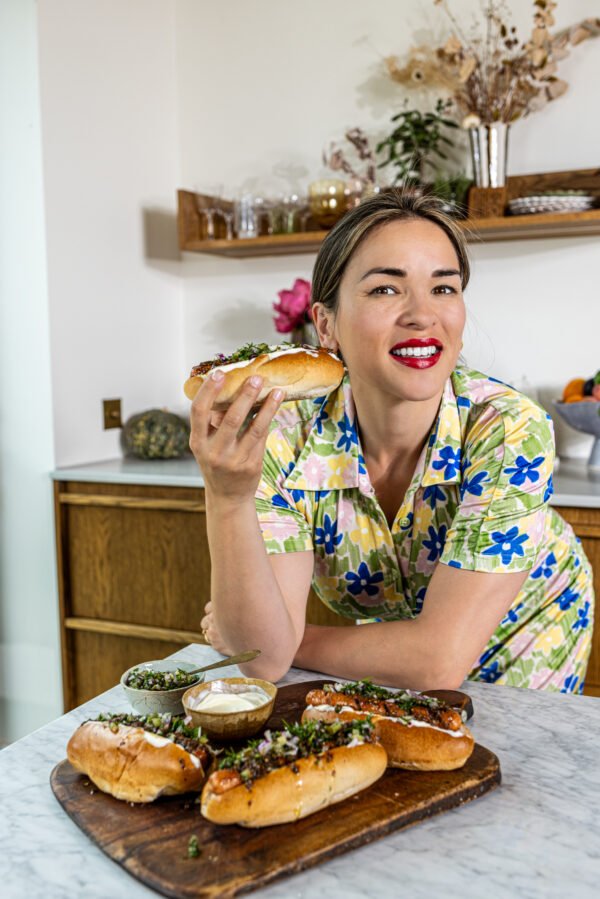
It’s Time to Stop Calling Families ‘Broken’

The journey from professional, independent young woman, to professional but a lot less independent mother is tough. No matter how much a baby is planned for, wanted and prepared for, you cannot plan or prepare for what becoming a mother really means. It’s one of the most fundamental shifts a woman can have in her identity.
For one in four mothers, they will face a secondary, less celebrated shift. They will step into motherhood alone, becoming the head of their household as a single parent. Whether by design or not, traumatic or not, this shift into a one parent family is one of the hardest things I have ever had to do and I know from the women I support through my work as a Leadership Coach – I am not alone.
Single motherhood is far from celebrated, but it’s also incredibly normal. Over 2 million families in the UK are headed up by a woman who has taken on the primary caring responsibilities for her children. 9 out of 10 single parents living with their children the majority of the time are women. That’s a lot of mothers, and a whole lot of children, a quarter of all the children in the UK today, in fact.

So why do we insist on calling unmarried women who parent, the heads of ‘broken’ families? It’s an outdated term that comes from an era when marriage was the norm and women were financially and socially dependent on their husbands to survive. Marriage today is in decline, many couples choose to simply co-habit and families change shape much more fluidly than they ever did before.
Women are earning and performing at all levels of professional careers. We have sexual and reproductive freedom here in England, the ability to marry or divorce as we see fit, or not at all. And our children are not marked out by their peers any longer as different or unique if their parents live apart.
So why does the moniker persist? I have seen a huge amount of guilt, shame and anxiety imbued in the term ‘broken family’. Study after study shows children from separated families suffer and I don’t deny that it’s true, children do struggle. But it’s time to move the conversation on. Children do not suffer because their parents live apart when this is arranged amicably and peacefully, with love. They do suffer terribly when their parents do not separate for months, years or sometimes decades – staying together ‘for the children’ and little else. Or when their parents separate angrily, despairingly, consumed with resentment and shame and fear.
I would love to see people talk about ‘healthy’ families instead of broken or intact families. What if it was acceptable to leave a man the moment he hurt you, instead of worrying if others will judge you for breaking up your family unit?
What would motherhood feel like for the 1 in 4 who parent alone, if they were respected, celebrated, cherished and thanked for being the parents who stayed to raise happy healthy children? Or who left, to make sure their relationships stayed joyful with their children and the homes they raised them in were not toxic and sad.
How could we reframe that journey to appreciate those parents who called time on toxic relationships and unhappy homes? I believe that the journey through relationship breakdown for parents could be so much softer, kinder, gentler if we would only recognise socially and culturally how positive it can be to release both mothers and fathers and their children to build new, thriving relationships across more than one home.
#metoo meant we could turn to our sisters, friends, colleagues. Even our own mothers who may have stayed in sad situations or left and braved raised their children alone in even harsher times… and say thank you. Thank you for proving that abuse doesn’t define you. That a break up doesn’t break you. That family isn’t about where you live, or who you stay contracted to love.
Motherhood today is a journey of self-discovery. Self-love and compassion, self-care and self-esteem are hot topics for us as women in so many aspects of our lives. On your journey of motherhood wherever it has led you to today, I invite every one of you to claim your family as beautiful, healthy and intact exactly as it is. We are #notbroken.
By: Nina Farr
Nina Farr is a Leadership and Parenting Coach who works with parents who are raising their families alone. She is a TEDx speaker and author of I am the parent who stayed – joyfully parenting alone available on Amazon.















































